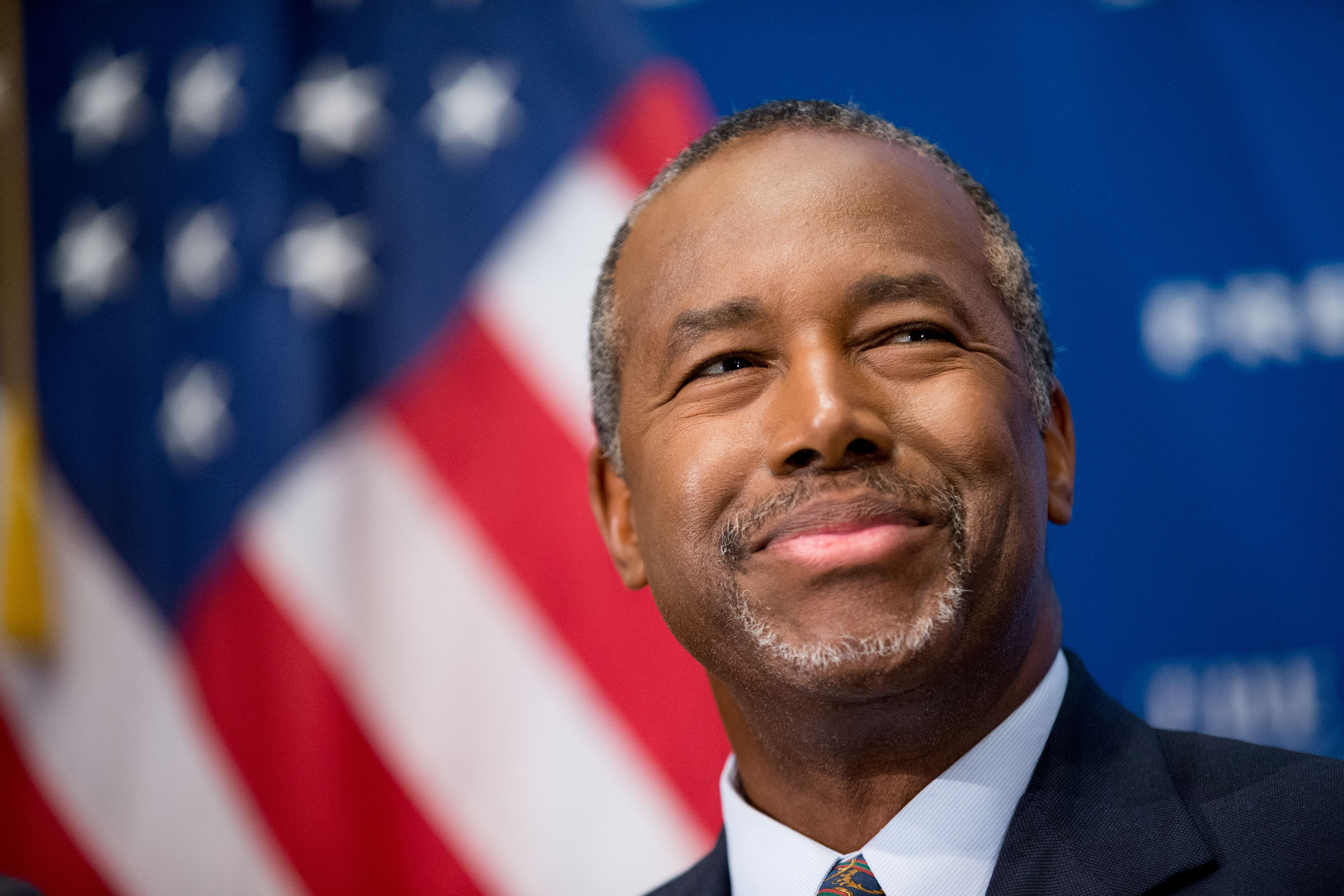Republican presidential candidate Donald Trump seemed to question the validity of the Seventh-day Adventists faith of opponent Ben Carson during recent comments in Florida.
"I'm Presbyterian," Trump said Saturday, according to several news reports. "Boy, that's down the middle of the road, folks, in all fairness. I mean, Seventh-day Adventist, I don't know about."
While Trump's comments drew criticism on a national scale, local representatives of the church preferred to turn the other cheek. In fact, some looked at it as a teaching moment.
"There are a lot of people who don't know who we are, who get us confused with the Jehovah's Witnesses or the Mormons," said Dave Ketelsen, pastor of the Hamilton Community Church, a Seventh-day Adventist congregation on Shallowford Road. "But we believe we're not on the fringes; we are Bible-believing Christians."
Steven Grabiner was among church leaders who weren't ruffled.
"We're comfortable with the spotlight, because the church - both in practical ways and in spiritual ways - has made a contribution to the larger good of society," said Grabiner, pastor of the East Ridge Seventh-day Adventist Church.
Trump made his remarks while discussing poll results in Iowa, which have shown Carson pulling ahead of the real estate mogul.
Grabiner said Trump isn't alone in his lack of knowledge about the Seventh-day Adventist Church.
"While people might not recognize the name, they may well have been benefited by an outreach the Seventh-day Adventist church has done," he said. He noted a recent health fair the church sponsored at the Chattanooga convention center, where the Adventists' booths were attended by some 1,500 people.
The church's beliefs are well-rooted within the Christian tradition, Grabiner said.
"Obviously, we have some unique emphases of belief, but we share with most modern Christians a dedication to Christ, perhaps more than some," he said. "We believe in demonstrating that with a holistic lifestyle, mentally and physically and spiritually, and we believe Jesus is coming soon and maybe demonstrate it more enthusiastically than other folks might."
Seventh-day Adventists are best known for their observance of the Sabbath from sundown Friday until sundown Saturday, instead of Sunday, the day followed by most other Christian believers.
The group got its start in the 1840s in New England, and now claims some 18 million followers worldwide, all but about two million of them outside the United States.
In 2011, USA Today cited research showing that the church was the fastest-growing Christian denomination in North America.
From its earliest days, the church has emphasized the importance of physical health, including a commitment to vegetarianism. The church is also credited with the introduction of breakfast cereals into the U.S. diet. Church leaders formed a sanitarium in Battle Creek, Mich., and served a lightly cooked cereal dough to patients. Two local men, C.W. Post and William Kellogg, whose brother was a church leader, founded separate breakfast cereal companies.
Some religious scholars say that emphasis on healthy bodies is one of the major attractions of Seventh-day Adventist today.
"Adventists show believers how to improve their lives in physical terms, as well as spiritual, and that practical message carries enormous weight in societies overwhelmed by disease and substance abuse," Protestant scholar Philip Jenkins wrote earlier this month in the Christian Century. "Faithfully following Adventist principles promises a major improvement in life chances and in longevity."
 In this photo taken Oct. 9, 2015, Republican presidential candidate Dr. Ben Carson speaks at a luncheon at the National Press Club in Washington. Hillary Rodham Clinton is dominating the money hunt in the presidential campaign. She’s collecting more bigger-dollar contributions than any candidate in either party among 26 states. The Associated Press’ review found that Republican Ben Carson was the second-best fundraiser in 10 states among those who gave at least $200 this election cycle. The retired neurosurgeon is ahead of former Republican Gov. Jeb Bush of Florida. (AP Photo/Andrew Harnik)
In this photo taken Oct. 9, 2015, Republican presidential candidate Dr. Ben Carson speaks at a luncheon at the National Press Club in Washington. Hillary Rodham Clinton is dominating the money hunt in the presidential campaign. She’s collecting more bigger-dollar contributions than any candidate in either party among 26 states. The Associated Press’ review found that Republican Ben Carson was the second-best fundraiser in 10 states among those who gave at least $200 this election cycle. The retired neurosurgeon is ahead of former Republican Gov. Jeb Bush of Florida. (AP Photo/Andrew Harnik) "A desire to live a healthy life is a clear tenet of Seventh-day Adventists," Grabiner agreed. He estimates that worldwide, about 40 percent of all members of the church are vegetarians, but the percentage is even higher in the U.S.
"But you don't get kicked out of the church if you are not a vegetarian," he added.
The church has an aggressive humanitarian aid program, Ketelsen said, and also supports the largest network of schools of any branch of Protestant Christianity.
Indeed, the Hamilton County town of Collegedale got its name from the Southern Adventist University, which opened there in 1892 and currently has more than 3,000 students enrolled.
The Georgia-Cumberland Conference of Seventh-day Adventists headquarters is based in Calhoun, Ga., and covers the geographical territory of Georgia, East Tennessee, and Cherokee County, N.C. More than 38,000 Adventist members make up the Georgia-Cumberland Conference, according to its website.
Seventh-day Adventists separate from some other Christian beliefs over the concept of hell. Instead of being tormented for eternity, Adventists believe those not admitted into heaven simply disappear forever. The church's position on abortion is more liberal than some other denominations - generally arguing against it, but allowing it in certain instances.
GOP candidate Carson did not respond directly to Trump's criticism of his faith.
But he has taken his own swipes. In early September, in response to a CNN reporter's question about how his beliefs are different from Trump's, he answered, "Probably the biggest thing - I've realized where my success has come from, and I don't in any way deny my faith in God."
He then added, "By humility and the fear of the Lord are riches and honor and life and that's a very big part of who I am. I don't get that impression with [Trump]. Maybe I'm wrong, but I don't get that."
Steve Johnson can be contacted at sjohnson@timesfreepress.com, 423-757-6673, @stevejohnson TFP on Twitter, or steve johnsonTFP on Facebook.

